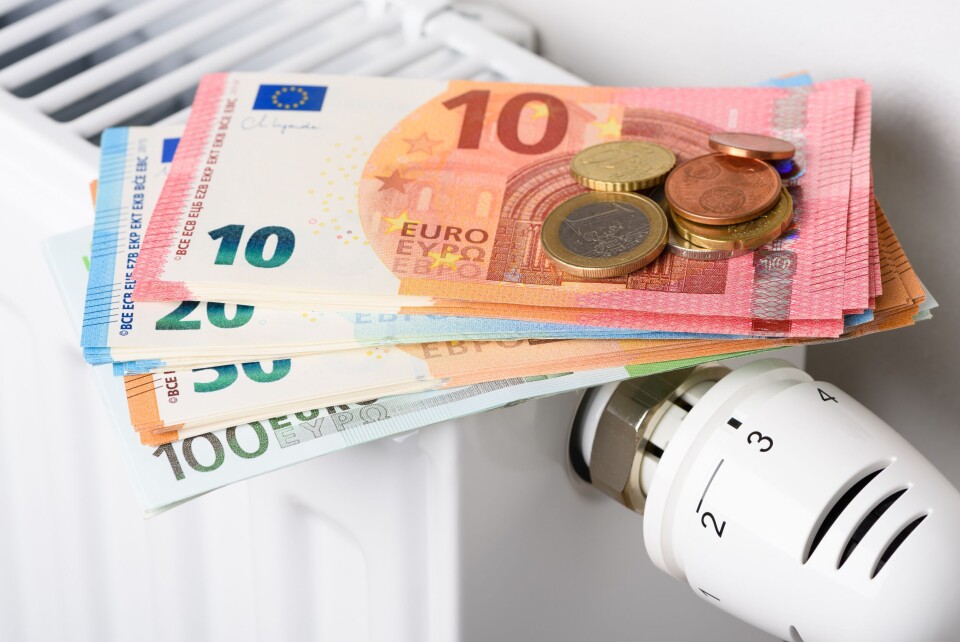-
French crisps brand gains global attention after Dua Lipa post
Singer posted photo of her shopping basket and the only food items were Brets crisps in braised chicken, honey mustard, and ‘Fromage du Jura’ flavours
-
Why supermarkets are urging shoppers to buy French leeks
Try our French classic leek vinaigrette recipe
-
New bill targets skiers under influence of alcohol or drugs
There are not currently any specific rules on skiing while under the influence
Energy bills, fuel aid: key points of PM's new announcements
Élisabeth Borne has outlined measures to be introduced for the public and business in 2023 in an interview, where she also spoke about retirement and pensions

Help with energy bills and purchasing power and updated plans for unemployment reform and pension minimums are among the main measures outlined by Prime Minister Élisabeth Borne during an interview today (January 3).
Ms Borne went over several key policies and plans for the months ahead in an interview with the French public service media FranceInfo.
She said:
- Household energy costs: Price shield or cap (bouclier tarifaire) to be maintained for gas and electricity but allowing a 15% rise in bills. This applies from January 2023 for gas bills and February for electricity bills
- Business energy bills: Energy companies should allow businesses that are struggling with rising energy costs to spread out bill payments
- Delayed tax: The government is set to allow struggling companies to delay their tax and other payments
- Retirement: Changing the retirement age from 65 is not set in stone. “Other solutions could permit us to reach a balance in our system by 2030”. “We will not go higher than 43 years of contribution payments. No-one should have to work for 47, 48 years,” she added.
- Minimum retirement pay: Ms Borne said that retirement payments should be a minimum of €1,200 per month, especially later for today’s young people who will be working longer before reaching retirement.
- Unemployment: The government confirmed that it will remove the controversial plan for a 40% reduction to the amount of time over which unemployed people can receive benefits if unemployment drops below 6%.
Read more: How your gas and electricity bills will change in France in 2023
She also called the current GP strike “irresponsible”, and commented on the transport strike, saying: “What the president has asked is that a few people exercising their right to strike should not penalise millions of people in France.”
She asked business directors to ensure a better continuity in public service.
Read more: French GP strike enters second week, no solution in sight
Read more: Latest on French GP strike and what to do if you need to see a doctor
What help will continue for energy bills in 2023?
For individual households, regulated energy bills are set to rise up to 15% as the government continues to offer its bouclier tarifaire in 2023. This applies to the millions of people who are on – or whose contract is indexed to – the tarif réglementé regulated rate.
The government claims that without its help, monthly gas bills would rise by €200 per household, rather than the predicted €25. Electricity bills will rise €20, compared to €180 without the government’s aid, it said.
Aid will also include:
- Energy cheques for homes heated with oil and wood to be paid by spring. The amount will be between €48 and €277, depending on income and family size. This money can be used to help pay bills or pay for energy-saving renovations
Read more: Electricity, gas, wood, oil: do you qualify for heating aid in France?
- Targeted help to replace the 10 cents per litre fuel discount. Aid of €100 to be paid to the 10 million least-well-off workers who must use their car to travel to work. It will be paid directly to those eligible on application. Applications open from January 16 via impots.gouv.fr and must be made by February 28
- Increase in MaPrimeRénov aid for the least-well-off households, to help make eco-friendly changes to homes. The cap on payable work is to be raised. However, the money can no longer go towards installing gas or oil heaters but only on works that will reduce reliance on fossil fuels
- Small and medium-sized businesses to benefit from a reduced rate of €180 per Mwh for half of their electricity consumption. These businesses do not currently benefit from government aid
Related articles
Rising energy bills: France to keep price cap in 2023
Energy bills in France ‘would double in 2023 without state protection’
What energy price rises can people in France expect for 2023?
























